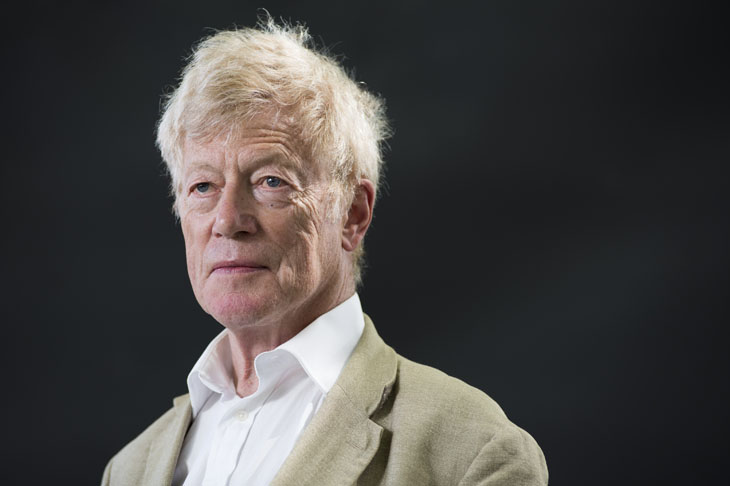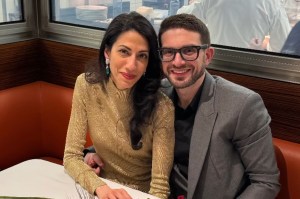I recently gave an interview to the New Statesman, on the assumption that, as the magazine’s former wine critic I would be treated with respect, and that the journalist, George Eaton, was sincere in wanting to talk to me about my intellectual life. Not for the first time I am forced to acknowledge what a mistake it is to address young leftists as though they were responsible human beings. Here is my brief response to an unscrupulous collection of out of context remarks, some of them merely words designed to accuse me of thought-crimes, and to persuade the government that I am not fit to be chairman of the commission recently entrusted to me.
Eaton repeats the libel, uttered under Parliamentary privilege originally, that I believe in some kind of Jewish conspiracy theory. Here is what I said in the speech (discussing the idea of the Nation State, and delivered to the Hungarian Academy) in which the relevant words occurred:
‘The Jewish minority (here in Hungary) that survived the Nazi occupation suffered further persecution under the communists, but nevertheless is active in making its presence known. Many of the Budapest intelligentsia are Jewish, and form part of the extensive networks around the Soros Empire. People in these networks include many who are rightly suspicious of nationalism, regard nationalism as the major cause of the tragedy of Central Europe in the 20th century, and do not distinguish nationalism from the kind of national loyalty that I have defended in this talk. Moreover, as the world knows, indigenous anti-Semitism still plays a part in Hungarian society and politics, and presents an obstacle to the emergence of a shared national loyalty among ethnic Hungarians and Jews.’
In retrospect I could have chosen the words more carefully. But my purpose was to point out that anti-Semitism has become an issue in Hungary, and an obstacle to a shared national identity. As for the Soros Empire, I am the only person I know who has actually tried to persuade Viktor Orbán to accept its presence, and that of the Central European University in particular, in Hungary. I did not succeed, but that is another matter. I should add that I am neither a friend nor an enemy of Orbán, but know him from the days when I helped him and his colleagues to set up a free university under the communists. What Orbán did then was the first step towards the liberation of his country, and George Soros was one of those who helped him too. It is sad for Hungary that the two have fallen out, and that the old specter of anti-Semitism has been reborn from their clash. Given their two aggressive personalities, however, it is hardly surprising.
Then there is Islamophobia. It seems that by questioning this word and pointing to its origin in the Muslim Brotherhood’s propaganda campaigns I am somehow showing myself to be guilty of the offense that it describes. I deplore the current use of this word, since it implies that there is some peculiar and irrational state of mind from which all objections to Islam proceed. I myself distinguish Islam, as a faith and a way of life, from the radicals who commit crimes in its name. I have a respect and tenderness towards the first of those, and a hatred of the second. But it is increasingly difficult, with the current abuse of language, to make this point, or to encourage Muslims to make it too.
I think of ‘homophobia’ as a similar word, designed to close all debate about a matter in which only one view is now deemed permissible. Apparently I once wrote that homosexuality is ‘not normal’, but nobody has told me where, or why that is a particularly offensive thing to say. Red hair too is not normal, nor is decency among left-wing journalists. In Sexual Desire (1986), I argued that homosexuality is different from heterosexuality, but not in itself a perversion. And I tried to explain the negative response that many people have towards homosexual relations in other terms.
Finally, my comments on China: I was describing the attempt of the Chinese Communist Party to achieve conformity of behavior in everything that might threaten its comprehensive political control, and I think it is fair to describe this as an attempt to robotize the Chinese people. The Communist Party expects each person to replicate the behavioral code, not questioning its authority and finding safety in imitation. Many people see the threat of this in the attitude of Beijing towards Hong Kong. Far more important, to my mind, is the internment of a million or more Uighur Muslims, in order to clean their minds of the dangerous God idea and re-program them with the Party idea instead. If we are not allowed to criticize this as the robotizing of the victims, then what are we allowed to criticize and how?
We in Britain are entering a dangerous social condition in which the direct expression of opinions that conflict – or merely seem to conflict – with a narrow set of orthodoxies is instantly punished by a band of self-appointed vigilantes. We are being cowed into abject conformity around a dubious set of official doctrines and told to adopt a world view that we cannot examine for fear of being publicly humiliated by the censors. This world view might lead to a new and liberated social order; or it might lead to the social and spiritual destruction of our country. How shall we know, if we are too afraid to discuss it?
This article was originally published on The Spectator’s UK website.


















